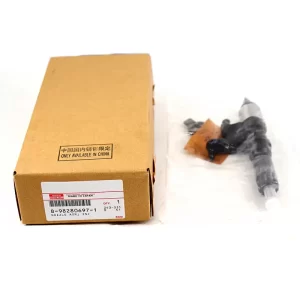A fuel injector is a critical component of modern internal combustion engines. Its primary function is to deliver the right amount of fuel at the right time into the engine cylinders. This precise control ensures optimal fuel efficiency, performance, and reduced emissions.
Fuel injectors work by converting liquid fuel into a fine spray or mist that can be easily burned in the combustion chamber. They achieve this through a combination of mechanical and electronic systems. Let’s delve into the operation and importance of fuel injectors in more detail.
Fuel Injection System Overview:
In a typical fuel injection system, fuel injectors are connected to a fuel rail, which delivers pressurized fuel from the fuel tank. The input signals for fuel injection timing and duration are provided by the engine control unit (ECU), which monitors various engine parameters such as engine speed, load, and temperature.
Opening and Closing:
Fuel injectors have solenoids or electromagnetic valves that control the flow of fuel. When the ECU sends a signal, the injector opens to allow pressurized fuel to be sprayed into the intake manifold or directly into the combustion chamber. After the desired amount of fuel is delivered, the injector closes.
Atomization and Spray Pattern:
To facilitate efficient combustion, the fuel must be atomized into tiny droplets and distributed evenly. Modern fuel injectors use precision nozzles and multi-hole designs to achieve this. The size and shape of the nozzle, along with the pressure of the fuel, determine the spray pattern.
Fuel Pressure Regulation:
Maintaining consistent fuel pressure is crucial for proper injector functioning. A fuel pressure regulator helps regulate the fuel pressure to ensure that the injectors receive the appropriate amount of fuel under different engine operating conditions.
Sequential Fuel Injection:
Many modern engines employ sequential fuel injection, where each injector is individually controlled to deliver fuel precisely when needed. This allows for better optimization of air-fuel mixture ratios, resulting in improved fuel efficiency and reduced emissions.
Direct Injection vs. Port Injection:
There are two primary types of fuel injection systems: direct injection (DI) and port injection (PI). In DI systems, fuel is injected directly into the combustion chamber, while PI systems inject fuel into the intake ports. DI offers better fuel atomization, increased power, and improved fuel economy, while PI provides better throttle response and lower particulate emissions.
Benefits of Fuel Injection:
Fuel injection offers several advantages over traditional carburetors, including:
Improved Fuel Efficiency: By precisely controlling the amount of fuel injected, fuel injection systems optimize combustion, leading to better fuel economy.
Increased Power and Performance: Fuel injectors deliver fuel directly into the cylinders with greater accuracy, enabling engines to generate more power and torque.
Reduced Emissions: Optimal fuel atomization and precise control of air-fuel ratios result in lower emissions of harmful pollutants, helping to minimize environmental impact.
Cold Start Reliability: Fuel injection systems provide easier cold starts by delivering the correct amount of fuel regardless of temperature conditions.
In conclusion, fuel injectors play a vital role in modern engine technology. They ensure proper fuel delivery, optimizing performance, fuel efficiency, and emissions control. With ongoing advancements in fuel injection technology, engines continue to become more powerful, efficient, and environmentally friendly.



